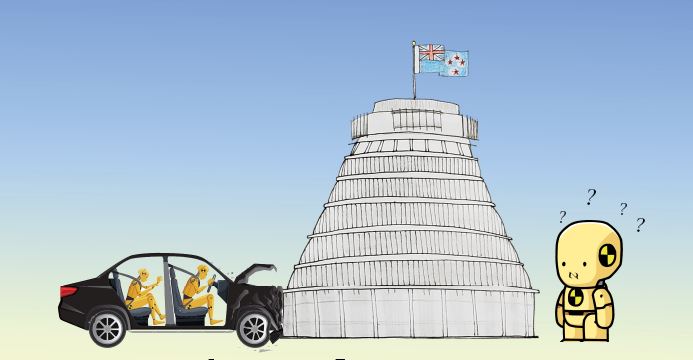
Here is your unbiased guide to the basics of politics in New Zealand
It’s easy to feel daunted by the big, scary world of politics. There is so much to know, and if you’re a new voter, or just don’t have the time or energy for a bunch of research, it’s difficult to know where to even start. Well, worry not dear reader; here is your unbiased guide to the basics of politics in New Zealand. Read on to learn how the system works, and what your part in it is.
Every three years, there is a general election in New Zealand. This means that everyone who’s eligible to vote in New Zealand gets to have their say on what the next government will look like. But who is eligible? To be eligible to vote in New Zealand, you must be over 18 years old, be a New Zealand citizen or permanent resident, and have lived in New Zealand for a period of at least 12 months at some point in your life. If this is you, then you get a vote!
Eligible New Zealanders vote on a few different things in general elections, and they’re not always the same. Every general election will involve an electorate vote and a party vote. For the electorate vote, you get to vote for who you want to represent your area. This person is called your Member of Parliament, or MP. The party vote is where you decide which party you want to represent you. This will be the party that you feel best represents your ideals and beliefs. There are also local elections, which also run every three years. Local elections determine who will make up the local council, and who will be the mayor. As for who to vote for, that I can’t tell you; only you know which party best represents your wants and needs. However, you can find lots of information online, and there are sites specifically designed to let you compare candidates and parties.
In some general elections, there will be referendums. A referendum is a question posed by the government or the public that the public then vote on. For example, in the 2020 election we had two referendums to vote on. One was whether cannabis should be legalised, and the other was whether euthanasia should be legalised. The Cannabis Legalisation and Control bill was not passed, as the majority of New Zealand voted no, but the End of Life Choice bill was passed, meaning that euthanasia (within certain restrictions) is now legal in New Zealand.
After New Zealand has voted in the general election, the preliminary votes will be published. This gives the country a general idea of which parties are coming in at the top before the final votes are counted. Then, the final votes will be announced about 2-3 weeks after election day. After the results are official, the seats of parliament will be filled. There are usually 120 seats in parliament. Every candidate who won their local MP vote gets to have a seat. The remaining seats consist of party members from the parties who received the highest party votes. The party with the most seats becomes the government, and the leader of this party will most likely become, or continue to be, the prime minister. Currently, we have a Labour government.
So what happens during the next three years after the election? Well, the new government will begin their work. This work basically involves a lot of decision-making. The government will work together and separately in order to resolve problems and conflicts that they see happening in the country. One of the important jobs that parliament has is passing new laws. When a law is passed in New Zealand, it starts off as a bill, which is a draft of a new law. Bills can be proposed by MPs or ministers, and will go through many stages (e.g. consideration of public submissions by select committees) before being voted on. If a bill passes, it means a new law has been made.
This process continues for three years, when the whole cycle will begin again. So there you have it – New Zealand politics made easy! Now when people talk about politics around you, you’ll have a basic idea of what they’re going on about. Good luck!
Words by Sarah Morcom
Art by Hilary Emerson Lay






